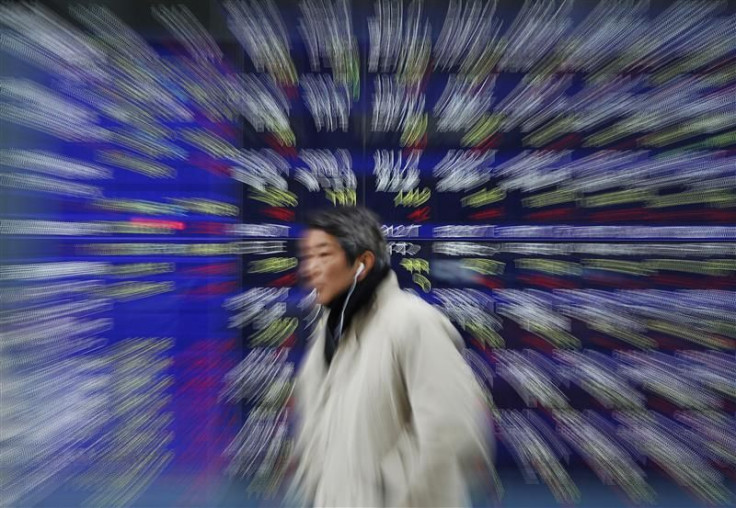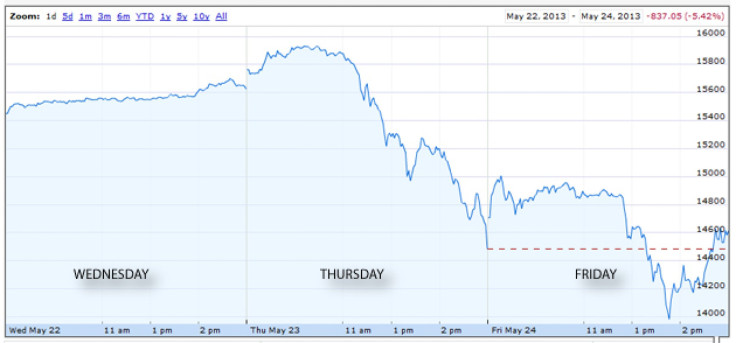After Shedding 7.3% On Thursday, Tokyo Stocks Close Up Slightly On Friday On Volatile Trading

The Friday ride is over in Tokyo, ending a roller-coaster day of trading with the benchmark Nikkei 225 up by 0.89 percent to 14,612.45 as traders sought out bargains from the previous session’s massive sell-off.

At one point, the index was down 3.5 percent from Thursday’s close, which was its biggest one-day fall in two years, but it regained ground in afternoon trading.
Spooked by possibilities of a larger global slowdown following weak manufacturing data from China, which is Japan's second-biggest export market, Japanese traders closed their positions after a bull run that began in November.
So far this year, the index has gained nearly 40.6 percent, and 70 percent over the past seven months, on a wave of optimism ushered in by a new drive on Japan’s fiscal and monetary policies under Japanese Prime Minister Shinzō Abe, which has since been termed 'Abenomics.'
That optimism was checked Thursday as traders closed their positions at the slightest hint of a downturn.
On Friday, analysts said the volatility that has hit the Tokyo bourse is likely to abate in the upcoming sessions. "The hot air had largely been removed from the market yesterday … Volatility is likely to fall in coming sessions,” Kenichi Hirano, market analyst at Tachibana Securities, told the Wall Street Journal.
However, given the Nikkei's recent climb, traders also expect the correction to continue in the market and the Nikkei to slide further.
"Considering how much the Nikkei has gained this month, yesterday's decline was not enough... a correction will likely continue," Mitsushige Akino, a chief fund manager at Ichiyoshi Asset Management, told Reuters.
The MSCI Asia Pacific Index fell 0.3 percent after gaining 0.9 percent and is headed for a 3 percent fall for the week, its most since May 2012.
© Copyright IBTimes 2024. All rights reserved.












